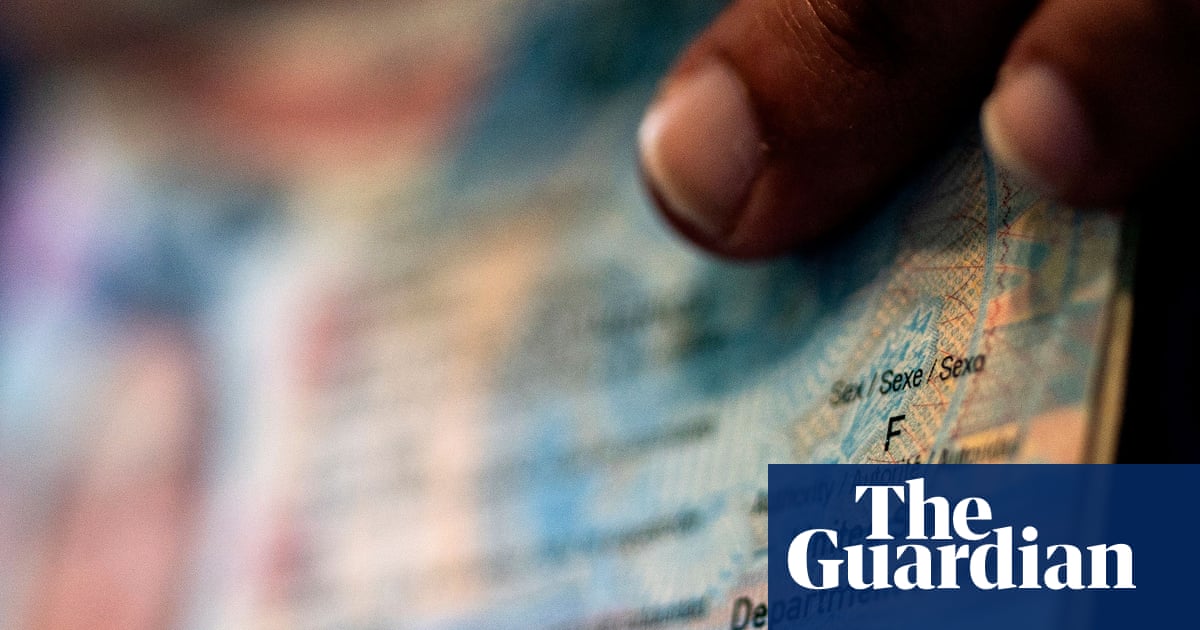Kim Xavier, a senior associate at CoveyLaw, an immigration law firm based in New York, has spent much of the last year bracing herself for any Friday announcements that might affect her clients.
So when Donald Trump announced on a recent Friday that he will impose a $100,000 fee on H-1B visa applications, the timing was not totally surprising.
“Every day, it’s like I’m trying to stay afloat. And every Friday, I’m just like, now what?” Xavier told the Guardian.
Though headline after headline has highlighted the Trump administration’s crackdown on undocumented immigrants, Xavier said many Americans don’t realize the heightened uncertainty legal immigrants are facing – something that immigration attorneys like herself have to confront every day.
“The perpetual fear that undocumented immigrants have dealt with their entire lives is now spread across the whole immigration system,” Xavier said. “This is something new, I think. This is something that a lot of people don’t understand.”
Cracks and fissures have existed within the legal immigration system for years, long before Trump came into office. The last time Congress passed comprehensive immigration reform was 1986. In the nearly four decades since, those trying to immigrate legally often face ambiguous standards, outdated quotes and backlogs, along with other issues that appear administrative but can have a huge impact on a person’s ability to stay in the country.
The difference seen over a generation is stark. “Even for people who have been through the immigration system, they’re like, ‘Oh, 30 years ago, I just came with a suitcase from Canada and I got my green card in three months’. It’s not like that any more,” Xavier said.
The pathway to becoming a legal immigrant in the US is a narrow one. A person can get legal status through family – if a spouse, child or parent is a citizen – or through their employer, like H-1B holders, or through extraordinary talent. Though the US has offered legal status for humanitarian purposes, for asylum or refugees, the White House has dramatically cut down on these humanitarian pathways.
The Trump administration has emphasizedthat its crackdown on immigration is targeted toward removing undocumented immigrants from the country.
“Ramped-up immigration enforcement targeting the worst of the worst is removing more and more criminal illegal aliens off our streets every day and is sending a clear message to anyone else in this country illegally: self-deport or we will arrest you,” assistant secretary for homeland security, Tricia McLaughlin, said in a statement last month.
But the administration is reportedly trying to cut down on legal immigration too. A recent Reuters report said the White House is planning to cut the number of refugees the US takes in from 125,000 down to 7,500, with the majority of slots reserved for white South Africans.
The administration also seems to be combing through the records of immigrants, including green card holders, for potential violations that weren’t considered deportable before his term. In September, an Irish green card holder living in Missouri was detained at an Immigration and Customs Enforcement (Ice) facility in Kentucky because she wrote a bad check for $25 in 2015.
Immigration attorneys like Xavier, who works solely with immigrants who have gone through the process legally, have seen how the ongoing scrutiny has had a chilling effect on legal immigrants who have lived in and even started families in the US.
Hanging over the head of many of these immigrants is the threat of losing their legal status, even temporarily, because of what Xavier calls “operational inefficiencies”: ambiguous delays and unclear communication about applications have left lawyers scrambling to keep their clients’ legal status.
Processing delays have been a major stress for Xavier’s clients, and can often leave legal immigrants in limbo. Lawyers don’t know when their client will hear back on an application, which can sometimes leave them stuck in the country.
One client with a pending green card application applied for “advance parole”, which would allow her to leave the US and legally re-enter even as her green card application is under review. Because her father was undergoing quadruple bypass surgery, she applied for an expedited advanced parole to be with him after the procedure. But, “they still denied the emergency advanced parole,” Xavier said, so she couldn’t travel back home for his surgery.
Xavier has also seen clients who have been living in the US for years and have had multiple visas get “soft denials” for renewals, meaning an application has been put on hold pending further documentary and scrutiny.
Complicating the process for visa applicants is that the renewal process requires communication between two branches of the federal government: US Citizenship and Immigration Services (USCIS), which is under the Department of Homeland Security, and the consulate of their home country, which falls under the Department of State. Lawyers have said there can often be a lack of communication between the two that causes delays.
Delays on application decisions can outlast certain “grace periods” the federal government gives to applicants for certain visas that allow them to legally stay in the country while they await renewal. This puts them at risk of being taken into custody or put into court proceedings when the grace period is up.
The Trump administration also recently gave USCIS special agents law enforcement powers, including the ability to make arrests and execute search and arrest warrants, powers that the ACLU has said has never been given to the agency and is a way to “systematically restrict legal immigration and strip people of their legal status”.
The added stresses and uncertainty has taken a heavy toll on both immigrants and their employers.
“We hear about the erosion of legal immigrant pathways impacting Silicon Valley, but also innovative startups, it’s fashion designers who are using sustainable efforts, it’s architects. There are so many different industries that are impacted here,” Xavier said.
Though the changes in immigration enforcement may seem insignificant for legal immigrants, the impact has been huge..
“They seem little, they seem incremental, but it’s been a long time coming. It’s been built into the system, and now they are coming at lightning speed, often in different areas and under the radar of the mainstream public, that when taken together they are overwhelmingly detrimental,” Xavier said. “In Spanish, we have a saying that goes la gota que derramó el vaso – it’s the last drop that made the glass overflow. You have these little drops, but they’re coming, and by the time you know it, you’re flooded.”

 German (DE)
German (DE)  English (US)
English (US)  Spanish (ES)
Spanish (ES)  French (FR)
French (FR)  Hindi (IN)
Hindi (IN)  Italian (IT)
Italian (IT)  Russian (RU)
Russian (RU)  3 weeks ago
3 weeks ago
























Comments